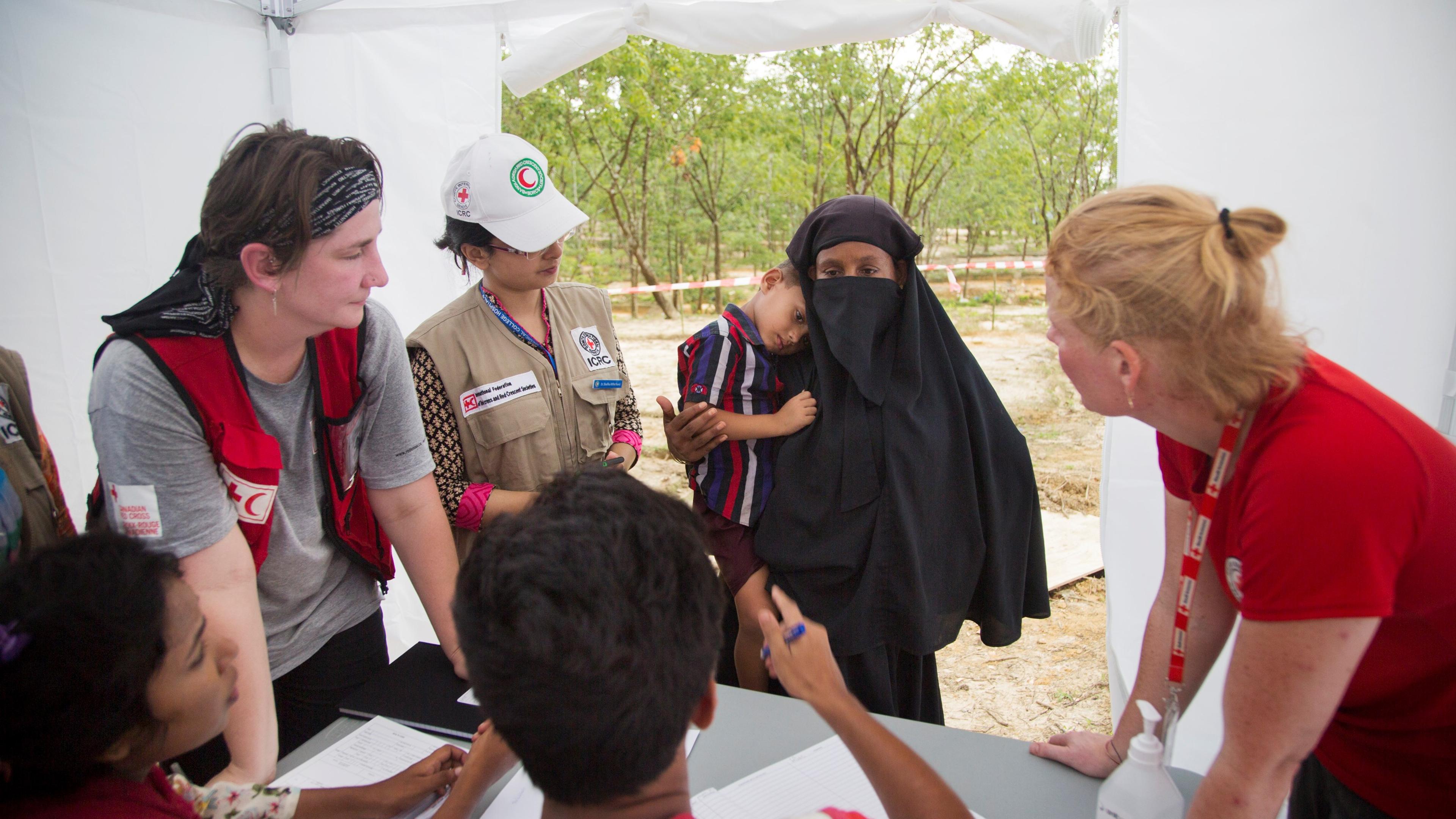Cash Voucher Assistance and health
 © Norwegian Red Cross
© Norwegian Red CrossWhat is the humanitarian challenge?
There is consensus that essential health services during a humanitarian crisis should be provided free of charge at the point of delivery, but the reality is that in many cases people still have direct as well as indirect health expenditures that can block access or compromise health outcomes. Many countries affected by humanitarian crises have poorly developed health systems, some already from before the crises, and their functionality often further degrades as the crises develops. Services can be characterized by high levels of out of-pocket spending, poor accessibility, interrupted supply lines, inequity, and poor quality of care from unregulated providers.
What is innovative about this project?
To date, much of the experience of using CVA for health outcomes has been explored in development settings, with more limited use in humanitarian crises. This has often been done in protracted crises, where humanitarian agencies have an existing footprint, and engagement with financial service providers. However, these systems and services take time to set up; negotiating a contract with a financial service provider can take several months, which will not be appropriate when Emergency Response Units (ERUs) must be ready to deploy within 48 hours. The RCRC Movement ERUs deploy rapidly into countries and need to be self-sufficient in their functioning, without relying on local systems which may or may not be functioning. This means, in order to use CVA to support patients during and post discharge, the Field Hospital ERU would need to be able to deploy with a delivery mechanism for cash and/or vouchers already in place. This project would like to explore how the Field Hospital ERU can partner with private sector actors, including financial service providers and technology companies, to develop systems, processes or agreements that would enable the rapid disbursement of CVA to patients and their families in any country globally. In addition, this learning could be used for other ERU’s that also wish to be ‘CVA ready’.
What are the expected outcomes?
The project partners will explore how to set up cash and voucher ready emergency response units. They will:
- Map the appropriateness of cash and voucher options to address health care needs in a hospital and post hospital context for people affected by crises
- Explore how the Field Hospital ERU can partner with private sector actors, including financial service providers and technology companies, to develop systems, processes and agreements that will enable the rapid disbursement of CVA to affected populations seeking health care in a field hospital context in any country globally,
- Explore how we can collaborate with the private sector actors to improve follow up of patients after discharge through remote monitoring and follow up.
Who are the project partners?
This project is a partnership between Norwegian Red Cross, ICRC and World Health Organisation.